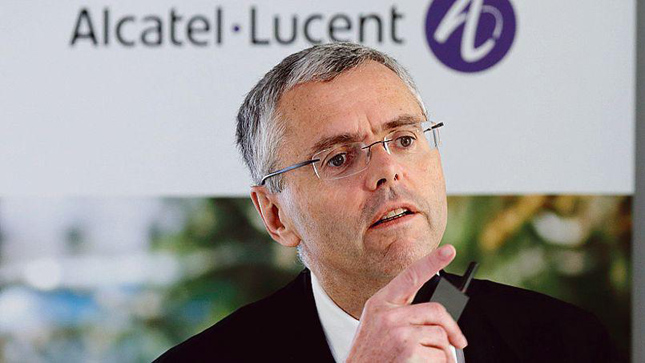15 April 2015
Finnish company Nokia has agreed to buy French company Alcatel-Lucent for €15.6 billion (£11.22 billion). Both companies have interests in the networking sector.

Alcatel-Lucent’s Michel Combes says the new company will be a “European champion and global leader”.
Nokia used to dominate the mobile phone business before the emergence of smartphones and, in particular, Apple’s iPhone. Eventually it sold off its handset business and was left with its network equipment making unit.
Alcatel-Lucent also makes networking equipment, but is smaller than Nokia. The two companies combined will have about 114,000 employees and sales of around €26 billion (£19 billion).
Combes says: “A combination of Nokia and Alcatel-Lucent will offer a unique opportunity to create a European champion and global leader in ultra-broadband, IP networking and cloud applications. I am proud that the joined forces of Nokia and Alcatel-Lucent are ready to accelerate our strategic vision, giving us the financial strength and critical scale needed to achieve our transformation and invest in and develop the next generation of network technology.”
Combes adds that the “transaction comes at the right time”, which some observers have taken to mean that software-defined networking is already having an impact on hardware makers. Combes, however, says it’s the right time to reinforce its presence in United States and China.
Rajeev Suri, CEO of Nokia, says the two companies have “hugely complementary technologies and the comprehensive portfolio necessary to enable the internet of things and transition to the cloud”. He also echoes Combes’ comment that the merger will strengthen its positions in China and the US.
“Together, Alcatel-Lucent and Nokia intend to lead in next-generation network technology and services, with the scope to create seamless connectivity for people and things wherever they are,” says Suri. “Our innovation capability will be extraordinary, bringing together the R&D engine of Nokia with that of Alcatel-Lucent and its iconic Bell Labs.”
In terms of its effect on the networking market, the company says it will now be “uniquely positioned to create the foundation of seamless connectivity for people and things wherever they are”.
The new entity will hope to capitalise on its undoubted innovation capabilities, with Alcatel-Lucent's Bell Labs and Nokia's FutureWorks, as well as Nokia Technologies, which will stay as a separate entity with a clear focus on licensing and the incubation of new technologies.
Nokia-Alcatel-Lucent has more than 40,000 R&D employees and had a spend of €4.7 billion (£3.37 billion) in R&D in 2014. It believes this puts it in a position to accelerate development of future technologies including 5G, IP and software-defined networking, cloud, analytics as well as sensors and imaging.
Alcatel-Lucent and Nokia say they have highly complementary portfolios and geographies, with particular strength in the US, China, Europe and Asia-Pacific. They will also combine their resources on fixed and mobile broadband, IP routing, core networks, cloud applications and services.
The company says consumers are looking to access data, voice and video across networks of all kinds. “In this environment technology that used to operate independently now needs to work well together. That is not always the case today, but together Nokia and Alcatel-Lucent are uniquely suited to helping telecom operators, internet players and large enterprises address this challenge.”










